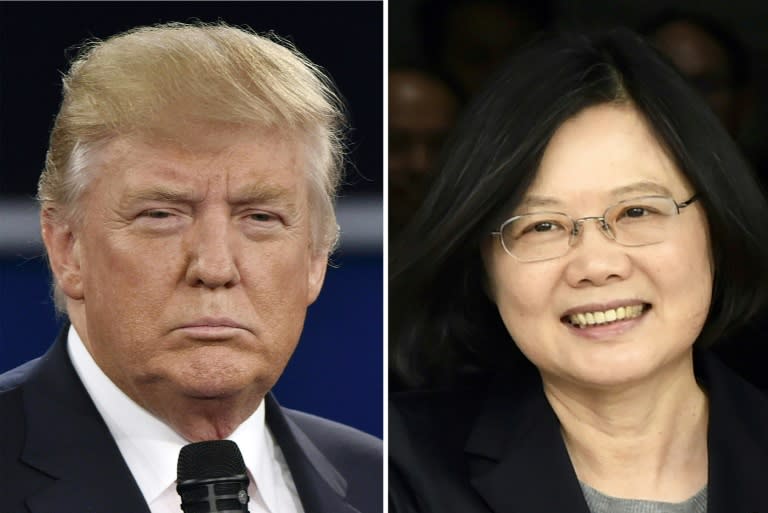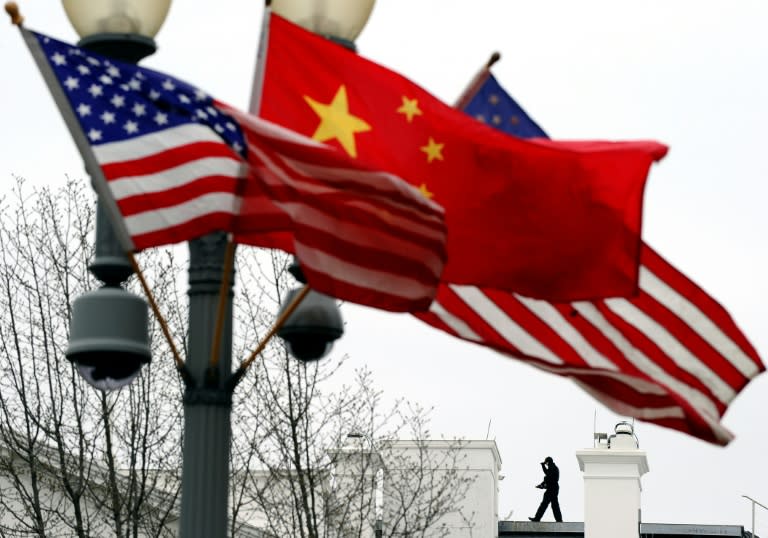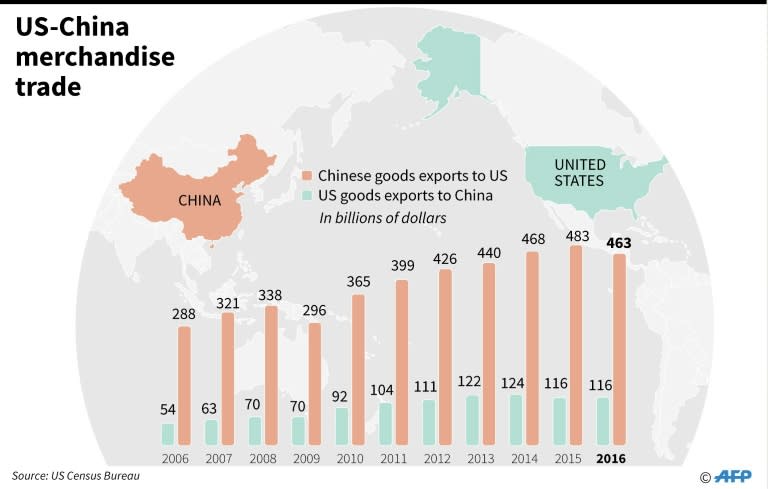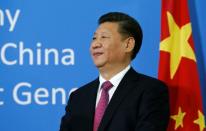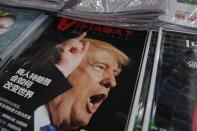180-degree turn? Trump, the US, Taiwan and China: a guide
US President Donald Trump endorsed the long-standing "One China" policy on Thursday during a phone call with Chinese leader Xi Jinping, a move analysts interpreted as a change of course for the mercurial leader. The tycoon-turned-statesman agreed he would "honour" a position that has been held by successive US governments since Richard Nixon's administration. It marked an apparent shift in thinking for Trump, who before coming to office had told an interviewer he didn't feel "bound by a one-China policy unless we make a deal with China having to do with other things, including trade". Here are the key issues surrounding the delicate triangle of the United States, China and Taiwan. - What's the problem? - The deep rift between China and Taiwan dates back to China's civil war, which erupted in 1927 and pitted forces aligned with the Communist Party of China against the Nationalist Kuomintang (KMT) army. Eventually defeated by Mao Zedong's Communists, KMT chief Chiang Kai-shek fled to Taiwan, which was still under KMT control. From there, Chiang continued to claim the entirety of China -- just as the mainland claimed Taiwan. Taiwan's full name remains the Republic of China, while the mainland is the People's Republic of China. Both sides still formally claim to represent all of China. Many people in Taiwan today remain distrustful of Beijing while others are keen to explore warmer relations, especially when it comes to trade opportunities. - What does 'One China' mean? - In 1992, Taiwan and mainland China are said to have agreed that there is only "one China," which includes both places, but they agreed to disagree about what that precisely meant. In principle, the decision means that countries can only have formal diplomatic relations with one or the other, but not both at the same time. Most countries have chosen Beijing, but many continue to maintain economic ties to Taipei. Washington cut formal diplomatic relations with Taiwan in 1979 when it switched recognition to Beijing. Since then, it has followed a "One China policy" -- different than Beijing's "One China principle" -- which acknowledges both sides' positions that there is only one China and Taiwan is part of it. But it has never made a clear statement about Taiwan's sovereignty, leaving the question unsettled. The result is a de facto two China policy, where the small island enjoys many of the trappings of diplomatic relations with the US. - What does the US usually do? - The United States has long maintained an ambiguous and at times contradictory approach to Taiwan. China regards self-ruling Taiwan as part of its own territory awaiting reunification under Beijing's rule, and any move implying support for independence raises China's hackles. Although there is traditionally no formal contact between the US president and his Taiwanese counterpart, US law requires Washington to sell high-end weaponry to Taipei. The legislation was designed to provide democratic Taiwan with enough military clout to defend itself against China's vastly superior armed forces, although in practice the island's defences lag the mainland's considerably. While there is no official US embassy in Taipei, Washington runs a nonprofit centre called the American Institute in Taiwan, which serves many of the same functions. - How has Trump affected ties? - Shortly after his November victory, Trump spoke by phone to Tsai, breaking decades of US protocol. He rubbed salt in Beijing's wounds by tweeting about the call, a move that riled Chinese nationalists. On December 3, Beijing issued a formal protest to Washington then followed up with a statement warning of a deterioration of Sino-US relations. Many Chinese newspaper editorials called for reinforcement of the country's military arsenal to prepare for possible conflict. Chinese foreign minister Wang Yi told Hong Kong media that the call was "a petty trick" by Taipei, putting the blame on Tsai. State media also gave him the benefit of the doubt, calling Trump "inexperienced" -- with the Xinhua news agency warning that "diplomacy is not child's play and you can't run it like a business". - So has the call fixed things? - Trump built his popularity, in part, on bashing Beijing for "stealing" American jobs and there are a number of committed China-sceptics in his administration, so a dramatic softening is unlikely, analysts say. But at the same time, now that he is in office, China is much less likely to cut him slack. Ashley Townshend, an expert in US-China relations at the University of Sydney, expects Trump to continue to be tough on China across many aspects of the bilateral relationship. The assurance to honour the "One China" policy "removes an obstacle to relations, but it doesn’t advance them in any meaningful way," Townshend said. Xu Guoqi of the University of Hong Kong says the call could offer something of a reset on which the two sides can now build. Now that Trump has assured Beijing that Washington will stick to the "One China" policy, the relationship is "back to square one", he said.

 Yahoo Finance
Yahoo Finance 